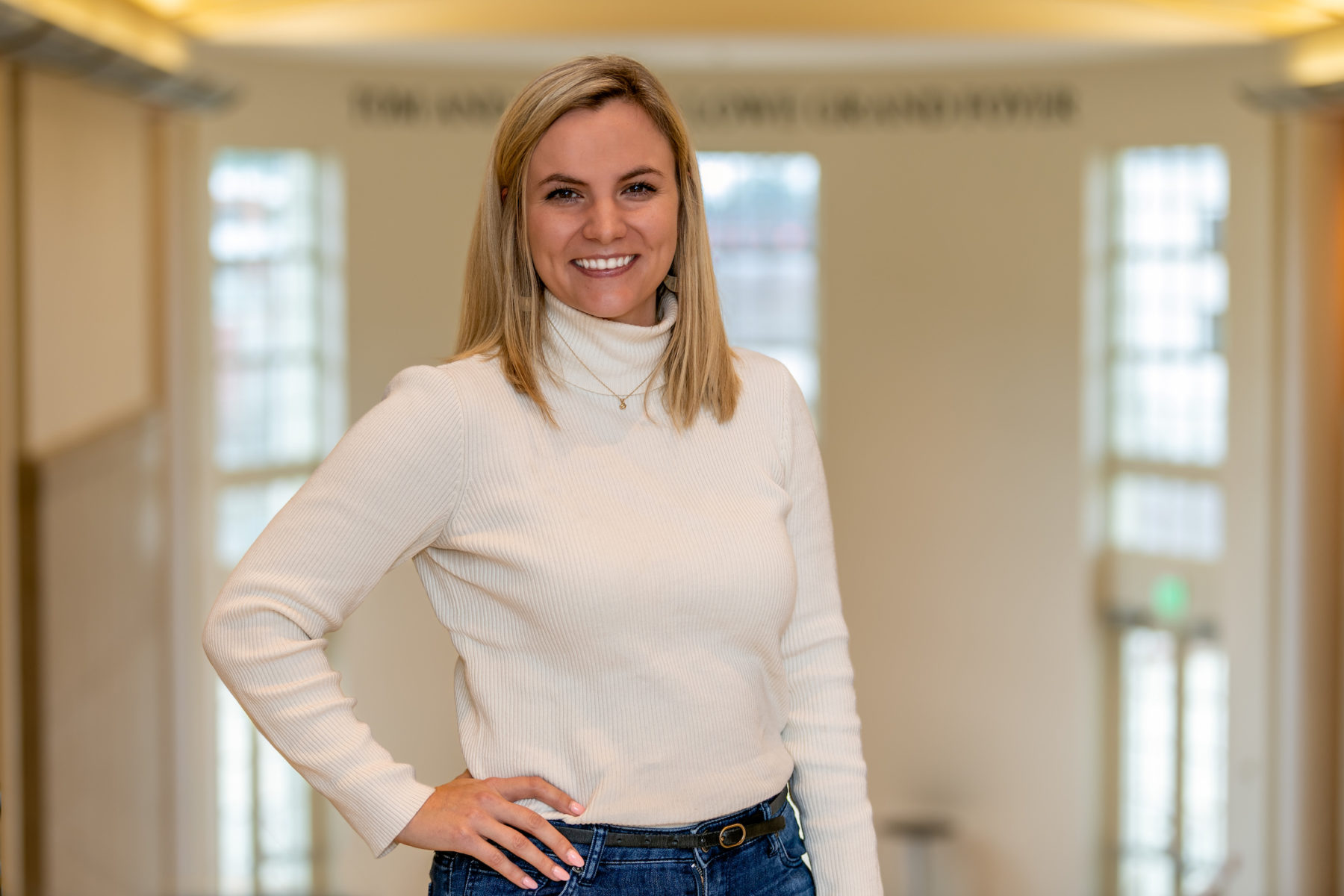
ALLYSON MCKINNEY ’16
Electrical and Computer Engineering
CEO and Founder, SoloPulse
As CEO of an exciting radar-based system, tell us what SoloPulse is and what it does…
SoloPulse develops proprietary signal processing software which enables radar to perform at its truest, physics defined, potential. Practically, this enables existing radar hardware to produce point cloud resolution radar images at all ranges with a single sensor. SoloPulse plans to begin by partnering with cutting edge automotive innovators to scale them from advanced driver assistance systems to autonomy via our software platform.
How did you become involved in this product’s development?
During graduate school I worked at the Georgia Tech Research Institute (GTRI). There, Dr. Christopher F. Barnes, an associate professor in electrical and computer engineering, came to a lunch-and-learn to talk about a revolutionary radar technique he had developed. I was so struck by the potential of the technique, I asked my GTRI mentor how I could help develop this technology. He encouraged me to apply for an Independent Research and Development grant, which allows junior level engineers to grow. This was the jumping off point for me in developing SoloPulse technology.
Was this idea possibly sparked at Auburn?
SoloPulse technology was developed at Georgia Tech. However, my experience at Auburn provided me with foundational knowledge that the wave theory is consistent in both radar and optics. This was critical for me as SoloPulse is rooted in wave theory. Because I spent most of my undergraduate time at Auburn exploring different fields, it wasn’t until my final semester that I found the technical focus that I love — radar. Having only one semester of radar made me want to go back to graduate school to learn more.
Any fresh, new ideas on the horizon?
Within the next two years at SoloPulse, we plan to prove our software solution allows radar — currently deployed on automotive vehicles — to experience a 10 times performance improvement. This will be proved out on data collected from an autonomous vehicle track in Atlanta. The world has been waiting for autonomous vehicles for a long time. We at SoloPulse believe our solution just might be the missing piece.
Which engineering-related student organizations were you involved in at Auburn?
I was a Cupola. Cupola was one of the most formative organizations for me. Being a Cupola taught me to be a leader and how to be well-spoken, which is not always something people teach as a priority for engineers. Also, being a Cupola allowed me to meet some amazing Auburn alums — providing inspiration for me that one day I can be as successful as them.
How did your Auburn electrical engineering education best prepare you not only for advancing your academic career via grad school, but to create a company?
Auburn’s electrical engineering program gave me a broad understanding of the world of engineering. I was able to explore multiple focuses inside electrical engineering, which gave me a strong fundamental base to connect different parts of the engineering discipline. One professor who had a great impact on my understanding that different disciplines are all connected was Dr. Stuart Wentworth (associate professor in electrical and computer engineering). He shared with us that his undergrad degree was in chemical engineering, but his doctoral work was technically in electrical engineering. The idea that engineers don’t have to stay in one lane was extremely fundamental in my professional growth.
You were named as a Forbes Under 30 lister. What does this honor mean to you personally and professionally?
Being an under 30 Forbes lister has been one of the most humbling and exciting experiences of my life. To be recognized amongst such amazing people is an honor in and of itself. Personally, this award feels all-encompassing. I have put in a lot of work on my technical and business development while taking some big risks. This award makes the blood, sweat and tears all worth it. It also has made me incredibly thankful for my family and community for all their support in getting here.
Regarding SoloPulse, the Forbes honor validates our trajectory and has opened so many doors for us from investors to potential collaborators.
Engineering and entrepreneurship often go together. Why do you believe this is true?
Engineering and entrepreneurship absolutely go hand in hand. Entrepreneurship is about seeing people have a problem/pain point and creating the solution. Engineering is about finding, solving and preventing problems. I think the greatest thing an engineer that wants to be an entrepreneur can do is learn about customer discovery. If enough people say they have a problem and you believe you have the solution, you have a product and maybe even a business!